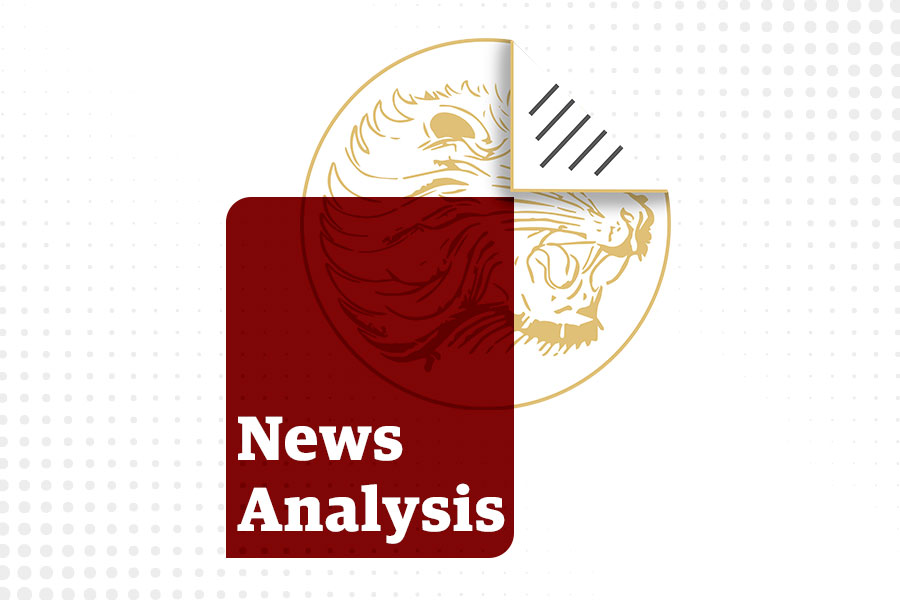
Fortune News | Mar 02,2024
Commercial banks find themselves in a quagmire following the implementation of the new Value Added Tax (VAT) Proclamation, ratified in July 2024. Confusion has permeated the sector as tax authorities demanded back taxes, interest, and penalties from banks for the past four months, causing tensions between financial institutions and senior officials from high-income taxpayers’ district offices.
Ministry of Revenues is pressing banks to comply with VAT remittances retroactively, backdating to the proclamation's enactment by Parliament. Alarmed banking executives warn that this abrupt enforcement could impose marked financial strain on the industry.
Under Abie Sano’s leadership who also heads the Commercial Bank of Ethiopia (CBE), the Ethiopian Bankers’ Association (EBA), has appealed to the Ministries of Revenue and Finance. They request formal instructions be sent to district tax offices affirming October 1, 2024, a start date for VAT collections. The letter indicates the date was agreed upon in September meetings between financial sector leaders and government officials, intended to give banks time to prepare and comply.
However, no official directive materialised from the Ministry of Payments following the discussions, leading to confusion among banks that initiated VAT compliance only after deploying the necessary systems in October.
"Commercial banks are hoping tax officials will acknowledge the complexities involved in retroactive obligations," said Demessew Kassa, secretary general of the Association. He noted that the law should apply only from its publication in the Negarit Gazette.
"This brings the applicability of the law into question," he said.
The July Proclamation aims to enrich government revenues by applying VAT to new areas of banking, including digital services such as ATM, POS, online transfers, and certain import-export charges.
The retroactive taxation sparks industry-wide debate. Yared Fekade, director of the tax declaration monitoring directorate at the Ministry, noted that the law is effective upon parliamentary ratification unless instructed otherwise by the Ministry of Finance.
"We are simply enforcing the law as it stands," he said, acknowledging that undeclared taxes attract penalties, interest, and administrative fees each month.
The federal government’s recent tax strategy targets increased VAT collections to raise Ethiopia's tax-to-GDP ratio by 0.5pc, aligning with a broader tax reform plan in partnership with the International Monetary Fund (IMF). A July agreement with the IMF includes goals to raise the tax-to-GDP ratio by four percentage points by 2027/28, relying on reforms to VAT systems and other measures. This year’s tax collection target has risen to 851 billion Br, with 487.22 billion Br expected from domestic sources, including 170 million Br from VAT collections.
Financial officials within the Finance Ministry expressed understanding of banks’ concerns but clarified that only the Council of Ministers can waive VAT requirements. However, interest and administrative penalties could be considered for reduction by both finance and revenue ministries.
According to Abraham Arega, tax policy advisor at the Ministry, the law is binding upon ratification.
"We'll review the concerns in line with legal frameworks," he said.
The new tax demands have placed additional pressure on banks wrestling with liquidity issues following foreign exchange liberalisation. They voiced their frustration with what they see as an impractical demand.
Dagmawi Kassahun, vice president for business and digital banking at Berhan Bank, marked on the difficulty of reclaiming uncollected VAT from past transactions.
"The financial impact on banks cannot be understated," he said, underlining the near-impossibility of recovering lost revenue from individual customers.
Berhan Bank, which saw its total deposits grow by 9.1pc to 36.9 billion Br, is among the banks urging clearer guidance on VAT compliance. Financial experts argue that such regulations demand ample preparation, including digital systems to monitor taxable transactions effectively.
Worku Lemma, a finance expert and former VP of Oromia Bank, called for a grace period, noting that banking remains a well-fortified sector. He cautioned that imposing VAT on only digital transactions could discourage digital banking in favour of manual processes, undermining the government’s digital transformation goals.
Central bank has set an ambitious target of increasing digital transactions fourfold, reaching 17 trillion Br by 2026. Data from the central bank show that digital accounts in Ethiopia exceeded 102.8 million as of June 2023, with an annual digital transaction volume of 12.2 billion Br and a total value of five trillion Br. Mobile money accounts have grown fourfold in four years, now totalling 68 million users.
Experts such as Ketema Adane, a tax consultant and partner at Ethio-alliance Advocates LLP, note that laws have traditionally taken effect only when published in the Negarit Gazette (the federal government's legislative publication). However, legislative changes have introduced applicability immediately after ratification, leading to inconsistent interpretation. Ketema criticised a lack of coordination between legislators and regulators, creating unpredictable assessments that overwhelm taxpayers.
He believes lack of readiness has left companies facing tax officials who are also underprepared, sometimes resulting in miscommunications and, in extreme cases, the risk of exploitative practices by auditors.
“Poor implementation risks adverse consequences,” he told Fortune.
PUBLISHED ON
Oct 27,2024 [ VOL
25 , NO
1278]

Fortune News | Mar 02,2024


News Analysis | Mar 09,2024

Featured | May 04,2024

Commentaries | Apr 10,2023

Fortune News | Sep 09,2024

Fortune News | Nov 09,2024

Viewpoints | Jul 17,2022

Radar | Sep 29,2024

Verbatim | May 24,2025

Dec 22 , 2024 . By TIZITA SHEWAFERAW
Charged with transforming colossal state-owned enterprises into modern and competitiv...

Aug 18 , 2024 . By AKSAH ITALO
Although predictable Yonas Zerihun's job in the ride-hailing service is not immune to...

Jul 28 , 2024 . By TIZITA SHEWAFERAW
Unhabitual, perhaps too many, Samuel Gebreyohannes, 38, used to occasionally enjoy a couple of beers at breakfast. However, he recently swit...

Jul 13 , 2024 . By AKSAH ITALO
Investors who rely on tractors, trucks, and field vehicles for commuting, transporting commodities, and f...

Jul 26 , 2025
Teaching hospitals everywhere juggle three jobs at once: teaching, curing, and discov...

Jul 19 , 2025
Parliament is no stranger to frantic bursts of productivity. Even so, the vote last w...

Jul 12 , 2025
Political leaders and their policy advisors often promise great leaps forward, yet th...

Jul 5 , 2025
Six years ago, Ethiopia was the darling of international liberal commentators. A year...